Interview with with Berthold H., a police officer in Danzig and veteran of the 4th SS Police Division. He fought in Poland, France, Russia, Greece, the Balkans and briefly on the Western Front. Travemünde, Germany, 1991.
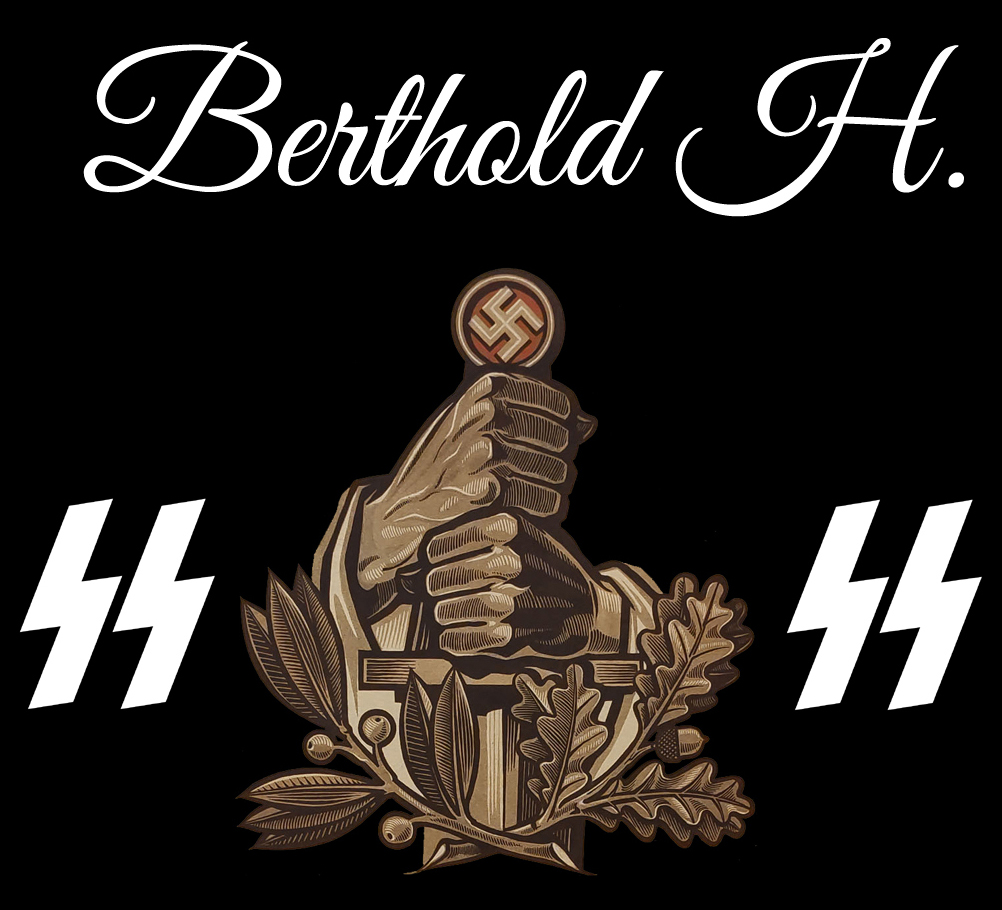
Interview with with Berthold H., a police officer in Danzig and veteran of the 4th SS Police Division. He fought in Poland, France, Russia, Greece, the Balkans and briefly on the Western Front. Travemünde, Germany, 1991.

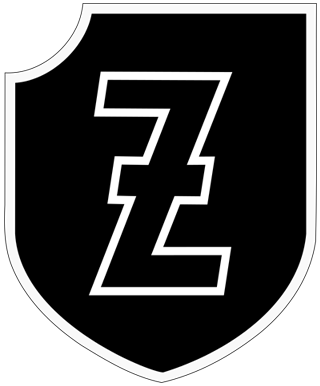
My family hails from Danzig and my father and his father were in the service of the police force of Prussia, so it was only natural that I would follow their example. I took my entrance exam after finishing school in 1938, and was admitted into the Ordnungspolizei [uniformed police], then I went through months of training. I took the oath in Danzig and started my career.
What was it like being in the police during the Third Reich?
Boring is a word I could sometimes use, police exist to keep the peace, stop crime, arrest criminals, and other domestic issues. After 1933, Prussia did not have a crime problem, the pimps, thieves, and drug dealers were sent away or fled to Poland. The problems we had were public drunkenness, fights, and disputes between neighbors. The Poles who lived in the free city [the 'Free City of Danzig' was a city-state ruled by the League of Nations between 1920 and 1939 after being stolen from Germany by the Treaty of Versailles after WWI] could give us problems with stealing and cheating, but for the most part they behaved. Occasionally we had to work traffic, but there were special men assigned just to this field. As you can imagine in this atmosphere we did not make many arrests, as most everyone obeyed the law and lived peacefully. Our biggest concern was border problems with Poland.
I can attest to you that we treated the Jews in the city well, after the assassination of [Ernst vom] Rath in 1938 which was one of the many crimes that Jews committed, Germans rose up against Jewish property. We were ordered to protect the synagogue and other Jewish owned areas from any demonstrators, but none happened. Bethke [Polizeioberst Willi Bethke was the commander of the Danzig Police] said Himmler was determined that we would protect them, while also encouraging them to leave the Reich.
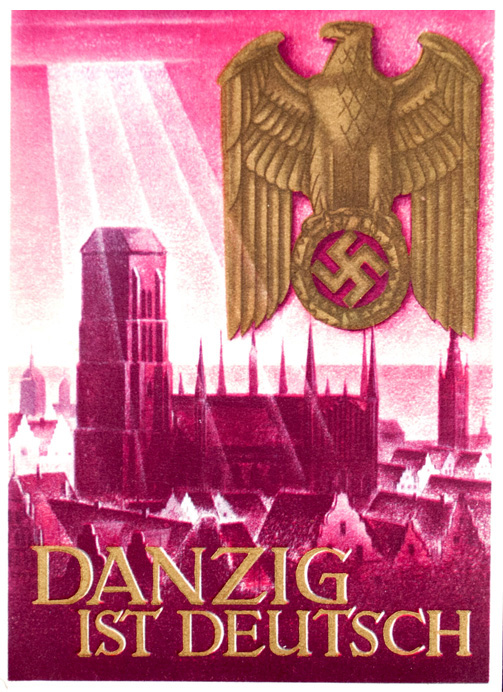
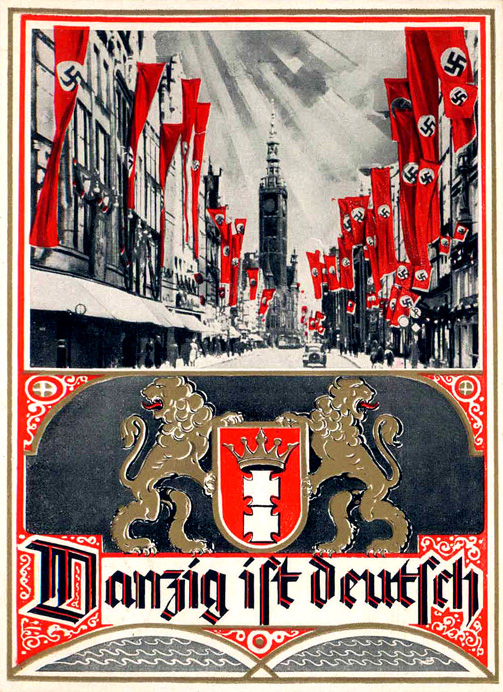
[Above: Postcards from the 1930s proclaiming 'Danzig ist Deutsch' (Danzig is German). Click to enlarge.]
[Above: Jubilant crowds on September 19, 1939. The banner says: 'Danzig grüßt seinen Führer!' (Danzig greets its Führer!). Click to enlarge.]
Can you talk about the border problems and what caused the issue?
Yes, many outside of Germany do not realize that right after the first war there was a war between the new Polish state and the old dismantled Reich. My father was in the Freikorps and fought German/Polish Bolsheviks, Polish nationalists, and the Polish Army. All wanted to invade and conquer Germany. Poland wanted much more land than what the victors of the first war gave them, so they embarked on military operations to take it. Luckily, for us, they also had to fight the Bolsheviks, who were in turn fighting veteran Freikorps armies.
Therefore, because they were disjointed their attacks fell apart by 1922, the border clashes became few and far between. A state of alert existed all through the 20s and 30s however, and there were incidences of Polish bands roaming across the border attacking farmers and stealing crops or equipment. The police in our area could do nothing as the League of Nations managed this area, but did nothing to stop these attacks. I heard stories of Poles being arrested for assault, kidnapping, stealing, and rape of Germans, and then League officials would assume custody and release them at the insistence of Poland. Even in 1939, as I assumed my role in the Order Police, there were incidences of Polish citizens sneaking across our borders and in some cases, Germans who resisted their intentions were murdered.
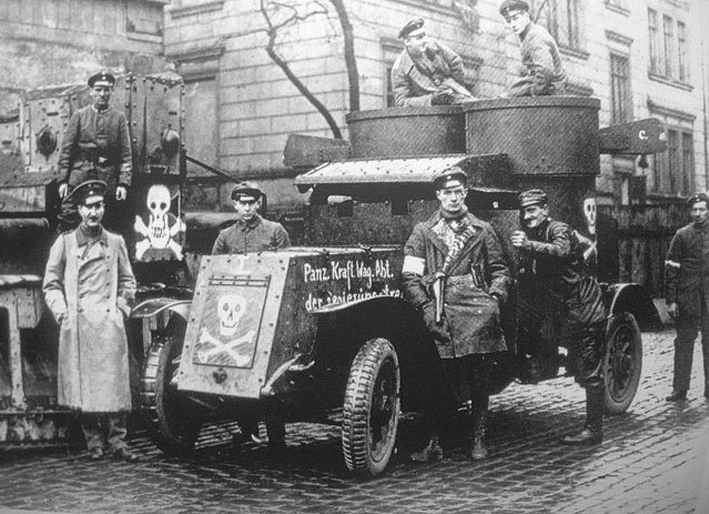
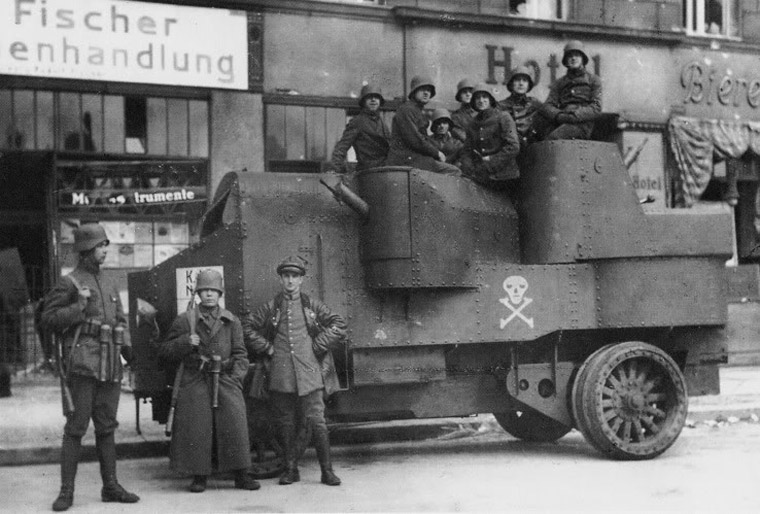
[Above: The German Freikorps were heavily armed veterans of WWI who returned to Germany and often fought in the streets with communists.]
What do you remember about the outbreak of war with Poland?
By 1939 we expected something would break out with Poland, we were told the Führer wanted the return of the corridor to the Reich, and was being met with sarcasm and hostility. This was largely pushed by England and had the side repercussion of Poles attacking the German minority out of anger. We started seeing an influx of Germans fleeing Polish persecution, they came by the dozens daily into Danzig, and we had to help direct them to the Red Cross and others to settle them. It was bad, yet the history books are silent on this today.
I was transferred to Land Police Battalion 1, which was a military-style unit, and began training with military grade weapons. When Polish flak fired on a German civilian plane we knew things were getting out of hand, and prepared ourselves mentally that war would happen.
On September 1st we were told that the night before Polish insurgents attacked a border town, and this was the final straw, now we were fighting back, as in 1919. The Polish Army had secretly been sending soldiers and arms into Danzig, and they had control of many government offices that were supposed to be under League control. The army was tied up on the border, so we attacked where soldiers had taken over government offices, forcing civilians to help them.
My unit had the task of clearing the huge post office, and [SS]Heimwehr "Danzig" forces were brought in to help. They had an old armored car from the first war, I believe they took it out of a museum. The defenders refused our repeated requests to surrender to avoid bloodshed. We even sent a party with a flag of truce to discuss terms and they were shot at. At many places in Danzig Poles rose up to fight us, and in some cases attacked German civilians who were unlucky enough to stumble into their area of control.
The post office turned out to be an all-day battle, Polish military men, who received German training early on, put their skills to work. We had reinforcements come from the army auxiliaries and SA men; we had close to forty men to the Pole's sixty who were defending. We had to use homemade explosives, a captured mortar, and finally fire to force a surrender. We were angered that some of the defenders were just civilians who had volunteered or were forced to fight, which was against accepted law.
Even our SA men were in uniform and sworn in as combatants, the Poles chose not to do this and fight as bandits. I believe the head of the building was held captive along with his family and he was glad to be freed after we breached the building and defeated the defenders. My unit was then sent into Poland behind the army to look for any separated enemy units that had not surrendered yet. We encountered some bands that put up a fight, although they outnumbered us sometimes, we defeated them easily. By October, my unit was transferred to the army for further duties, which included rounding up stragglers, and enforcing wartime laws.
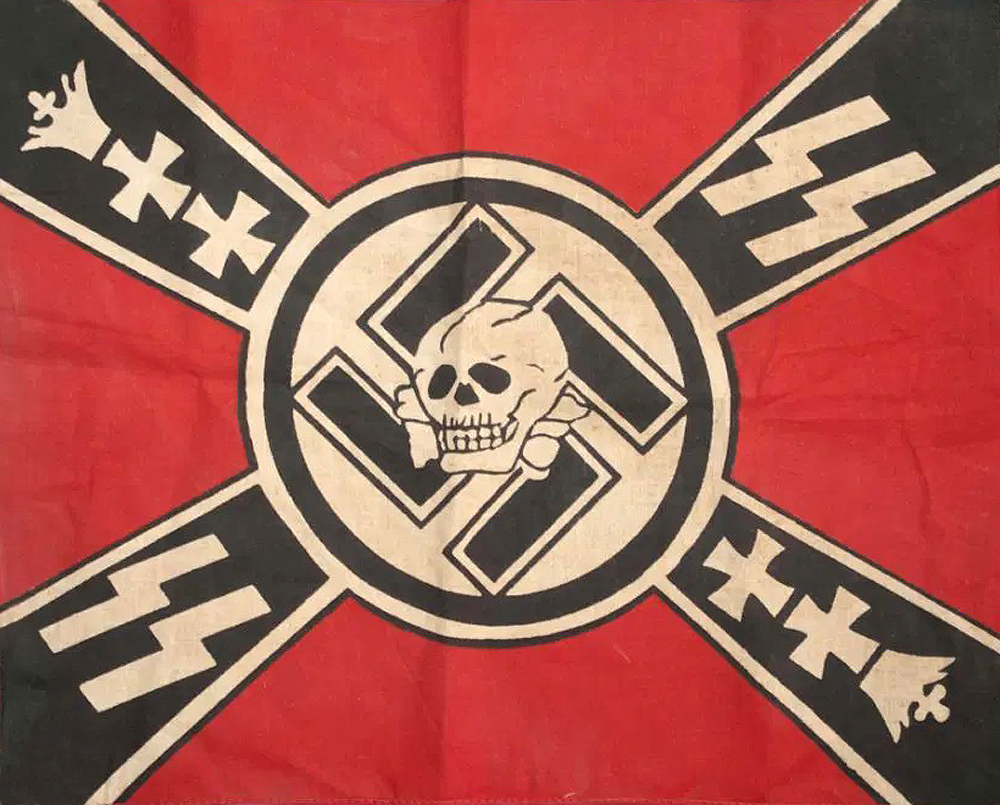
[Above: Spectacular flag design of the SS Heimwehr "Danzig".]
Did you witness any atrocities in Poland? Germany is accused of genocide of the Polish people from the very beginning of the war.
No, German forces were under very strict orders to follow both Geneva and Hague conventions, plus German law, which was sometimes stricter. All prisoners were well-cared for and our medical staff were kept busy treating them, and they were never mistreated. Many would be released from POW camps to join us in the fight later on, or work for us if they wished. Sadly, there were incidences where civilians who were fanatic nationalists or Bolsheviks attacked our rear areas, which was staffed by the very people who were trying to help them rebuild and heal. When these bandits were captured, the law prescribed execution as they were in violation of rules of conduct for civilians during an occupation, but this was a very small number.
As a police unit, it was our sad duty to follow these orders and prescribe justice through firing squads. It was very hard on us to do, killing women, and sometimes teenagers was mentally troubling, but we always had to remember these people had committed sometimes very horrible crimes. Everything from killing wounded soldiers, raping German women, violent looting, sabotage, spying, to attacking military units could earn a death sentence. This was to warn others from attempting the same things.
I will say executions were a last resort, anyone charged with these infractions had to undergo a trial, sometimes very quickly if the evidence was strong, and if there was any doubt of guilt they would either be released or serve minor time in a prison camp. Execution was not preferred and a last resort for severe crimes. We wanted to work with the Poles and did not want them feeling as if we were taking revenge on a defeated people.
I understand we are accused of carrying out vicious attacks for no reason; raping, looting, and terrorizing the population, but this is just not true. I saw no evidence of random killings or anything other than minor thefts. Army officers today have written that they were angered by our conduct in Poland. Because their "memoirs" were written well after the war, I know that they are not being honest. I believe they are trying to make money off anti-German sentiment, and make themselves out to be saints while everyone else was bad. Even the filmmaker Leni Riefenstahl wrote that she witnessed an execution and even agreed we were exterminating people. What people claim they saw I am sure was bandits being shot for crimes they committed that were against the law, and they were punished severely as every army has had to do.
Did you interact with Jews during this period or see any persecution?
The Jews were in small enclaves throughout Poland, mostly in the east. In 1939, they were left completely alone. I remember going through a small hamlet close to Warsaw, our truck broke down, and the local rabbi came out with his large family to see if they could help, and encouraged others to come out. They provided us with lunch as we waited for repairs. They looked poor and ragged, I remember, but were very friendly and knew they had nothing to fear from us. There were several incidences where Poles attacked Jews and we had to intervene to stop them. During the war with Russia, we really saw this, where entire hamlets were razed by Polish bandits, killing every last Jew. This was due to the reign of terror of the Bolsheviks in Poland, who were aided by Jews many times.
Whenever we went into a town, the Poles wanted Jews removed, and Jews came to us for protection. It put us in a dilemma. We came into a few towns where a couple of Jews, due to their long hair and lack of hygiene, had what our medical staff said was signs of typhus. This disease killed millions after the first war and was highly contagious. We told the rabbis of the towns they needed to shave and cut the hair of the town's people, which was the only way to stop this disease. Our medical officer ordered them to be shaven so they would not have the lice that caused typhus. They were not happy at all but this was only done to help them. The rabbis did the shaving and we helped with washing and cleaning up. What a war. This disease raised its head in the camps at the end of the war, with many eastern Jews being brought into the Reich. They infected many other inmates and due to the state of the Reich in 1945 there was nothing the camp officials could do to stop the spread.
What happened after the Polish campaign?
We were in the 60th Infantry Division and put through more training to make us a frontline combat unit. I was awarded the Iron Cross for capturing stragglers without firing a shot, which I was very proud of. In April of 1940, we were moved to the border area with France, we learned of the attacks on Denmark and Norway, so we knew it would not be long until we attacked the much larger French Army. No one thought this would be easy, and we were scared that we could be overwhelmed; the blockade by the English was already causing worries. My unit was fully horse-drawn, hardly any vehicles to speak of, and not prepared for a mobile war. Germany as a whole was not prepared for this war.
We went in behind the army, just like in Poland, and mopped up pockets of French resistance, some proved to be quite tough, causing us losses. We had our first great battles along the Maginot Line, and came under intense shellfire.
I received my first wound in France, I was moving into woods where a recon unit took fire, and I was hit in my stomach area by hidden defenders. I was evacuated to a rear hospital and put on a train back to Germany. My wound was bad, but it could have been worse. I was sent back to Danzig for two-month convalescent leave. I was surprised to learn that France fell so quickly along with the Low Countries. The war the Allies wanted was not going well for them at this point.
I was able to meet my future wife; she was a BDM [League of German Girls] helper and a nurse-in-training at the hospital I was in. I was attracted by her long blonde hair and pretty smile. We would take trips up to the beach to ride horses and to escape the war. Duty called me back to France when I healed; my regiment was part of the occupation force. I remember getting along very well with the French people; we worked closely with French Gendarmes [police] and provided rear security. We did not have the problems with bandits in France like in Poland. The French were gracious and went out of their way to be kind to us, they may not have liked us to be there as invaders, but at least they were friendly. I met a widow who ran a makeup shop who always insisted I send my new girlfriend the latest lipsticks and blush, so I complied.
No sooner had I settled in, when orders came that our regiment was going to be disbanded and sent to another army unit. Many in the police felt we were first and foremost police officers and that we were not being used wisely. We wanted to either be fully combat soldiers sent into battle, or go back to police duties, not wasting away on occupation and rear area clean-up. An NCO told us about the SS Police Division and that we could apply to be transferred. Since the SS was linked to the police, it was an easy decision.
Several comrades and I transferred to the 4th SS Police Division. That was good for me as the division had been stationed close to home and I was able to visit my girlfriend Astrid often while I started my training. I remember 1941 being very relaxed, the war was going well, I saw Astrid very often, and even attended police training in Danzig. We wondered what our next action would be, some thought Africa, some an invasion of England, a few said that with Bolshevism aiming to take over the world, that we would come to blows eventually. How right they ended up being.
What was the invasion of Russia like?
My division was part of Army Group North, but held in reserve. We awoke on June 22nd to distant sounds of battle, and seeing bombers flying missions and returning. It was announced in the morning that we had attacked Russia as a preemptive move to prevent an attack on the Reich. We were ordered to make ready all equipment and vehicles as we would be going into action in a few days. We were anxious, but I remember those few days turned into a few weeks. By the time we were ordered into Russian territory, we were frustrated. As I mentioned earlier we saw evidence of Jews being attacked by Polish bandits, and in Lithuania we learned that during the Bolshevik occupation Jews had helped turn in those who were Christian and anti-Bolsheviks. It was demanded that we aid in arresting Jews who were wanted by the local authorities and return them to face their accusers.
As we moved through the Baltic areas, we never saw heavy combat and we were again used to mop up pockets left by advancing divisions.
The weather was hot and dry but nice; some soldiers had sunglasses and looked to be more on holiday than at war. When we entered into towns and villages, we were greeted with water, food, and sometimes alcohol, but the Bolsheviks kept most everyone poor and not able to afford extras like drink. Many times lost Russian soldiers would turn themselves in to us and we would process them for POW camps. I remember many Russians asking if they could help us, and it was to the disdain of senior soldiers that we took in former enemies as helpers who rode with us, cooked for us, and did chores. I remember we called them Hilfswillige or Hiwis [auxiliary volunteers], and they lived just as we did.
We kept driving deeper into the region when we finally crossed the former Russian frontier, and headed for Leningrad. Our first big action was before Luga, where we truly had our baptism of fire. We attacked well-entrenched Bolsheviks who caused us heavy losses. I was attacking a bunker line with my platoon when a grenade went off close by wounding me again, this time in my leg. I was sent back to Riga [Latvia] for recovery. The list of fallen comrades, especially our commander, was sobering; it brought the war into focus for me for the first time.
[Above: Soviet prepaid postcard with very rare German emergency overprint 'LUGA'. This postcard, along with a small handful of postage stamps, were prepared but never used. Luga is a town in Leningrad Oblast, Russia. The German advance on Leningrad was temporarily halted by seven Soviet divisions in the Luga area which delayed the German attack on Leningrad by over a month. The German occupation of Luga lasted from August 24, 1941 to February 12, 1944.]
What was your impression of the Soviet soldier?
As most Germans would agree, there could be good ones and bad. In the beginning of the war, we faced veteran soldiers who had taken part in the Finnish war, so they had combat experience. Even though we were outnumbered by a large margin, we ended up routing large armies and taking vast amounts of prisoners. The amount of supply dumps we overran was staggering, and tends to prove Stalin was prepping for an offensive against the Reich, these dumps provided us with much needed fuel and supplies.
I guarded many prisoners and while most were disheveled and filthy, many stinking of body odor and urine, some were surprisingly intelligent and fluent in German. They would ask for food, or bandages for their comrades, and if we had any we gave it to them. One of the biggest misinformation campaigns that is going on today is that we mistreated them, and even killed them later. The fact is they were well-treated, and most went on to help us all over Europe on every front. The truth is that when the Allies forced these volunteers back to Stalin, he had them executed by the hundreds of thousands, and chalked up the numbers to us. Russian losses are much overstated today, just like Jewish losses.
The Police Division had many Russians helping us in every platoon, some falling in battle attempting to stop an attack. I hold the Russian people in very high regard but what the Bolshevik army turned into late in the war was nothing short of a criminal horde. [Ilya] Ehrenberg goaded them and ordered them to commit some of the worst crimes in all of history, and then smugly stated we deserved it, as we did the same thing to them. Utter nonsense, our treatment of terrorists and bandits in no way equals what they did to civilians and soldiers.
We treated the Russian people with great respect, and went out of our way to protect them from the war; I have photos taken in the many villages we were in showing happy, well-fed Russians getting along very well with us. Sadly, Stalin had many of them killed or taken away when his armies retook these areas.
What about treatment of partisans? History records that the SS especially went from village to village killing as many people as could be found.
I am certainly aware of what the history books say, but they are wrong. The fighting on our eastern front was hard, but there was a lot of civility as well. For me the problem was the [Soviet] commissars and NKVD [People's Commissariat for Internal Affairs, or secret police], these two were absolute fanatics and killed soldier and civilian alike. They installed such fear in the population and committed horrendous acts of terror that I can never get out of my mind. Whole families would be found shot and mutilated, rarely would there ever be witnesses but when they did come forward, the testimony they gave was shocking.
I can tell you, I was on a firing squad where we caught 15 bandits, who had went into a friendly village where an informant told them who was friendly to us, they then killed entire families as a warning to not help us. A patrol surprised them and brought them to our area for interrogation. At the same time a woman from the village came to our officers and told them what happened, and then was able to ID the men. A battalion went to the village to document what happened. Men, women, and children had been brutally killed, the leader of the band was a Jewish NKVD officer sent behind our lines to enforce acts of resistance to us, he said.
In Russia, there was a front behind the front where nationalists and auxiliaries battled the bandit groups; it was very bloody with no mercy given. When we caught anyone behind the lines with weapons, they were questioned and if they had no passes or someone to vouch for them, we assumed they were working with the bandits and they were hung or shot as terrorists. Luckily, we did not have this happen very often. The brutality of these so-called "freedom fighters" was something only the devil would approve of; they were a special breed of people that went out of their way to be cruel. Today these people get to tell their stories and they turn their crimes into revenge, and claim we did something first that brought out their anger. The sad truth is they hated National Socialism and the invaders, and used any cruel method to make people not want to help us.
What happened after your wounding the second time?
I was sent back right in time for the cold to come, it was miserable. Lucky for me my parents came to visit while I was in the hospital and brought me some winter clothing so I was better prepared than most. By November it appeared victory was in our grasp, we were about to take Moscow, Leningrad was surrounded and the Russians were in disarray. A huge counterattack threw back all our forces and came as a shock. My division had destroyed a large attack, and was moving steadily forward, but we were halted by weather and fierce counterattacks. Orders came to move to a staging area to stop further attacks. During these battles, we became an SS division, and stayed put on the Leningrad Front, battling the bandits who actively tried attacking our rear and the Bolsheviks who were constantly trying to relieve Leningrad.
We settled into a stalemate, and largely fought the elements. Russia is a very beautiful country, but the bugs I will never forget, the area we were in was wet and swampy. We were pulled out to rest and refit in peace, and take on the new name 4th SS Polizei Panzergrenadier Division.
We had lots of training on the vast amount of motor and tracked vehicles we now had, far different from the early days. It was around the middle of 1943 when we were fully ready for action. It was announced we would be heading to Greece. There was very active communist bands, funded and lead by Moscow, who needed destroyed. Since our ranks contained a large contingent of police officers it was decided we would be best suited. This was an example of how small bands of terrorists tied down whole divisions who were badly needed at the front.
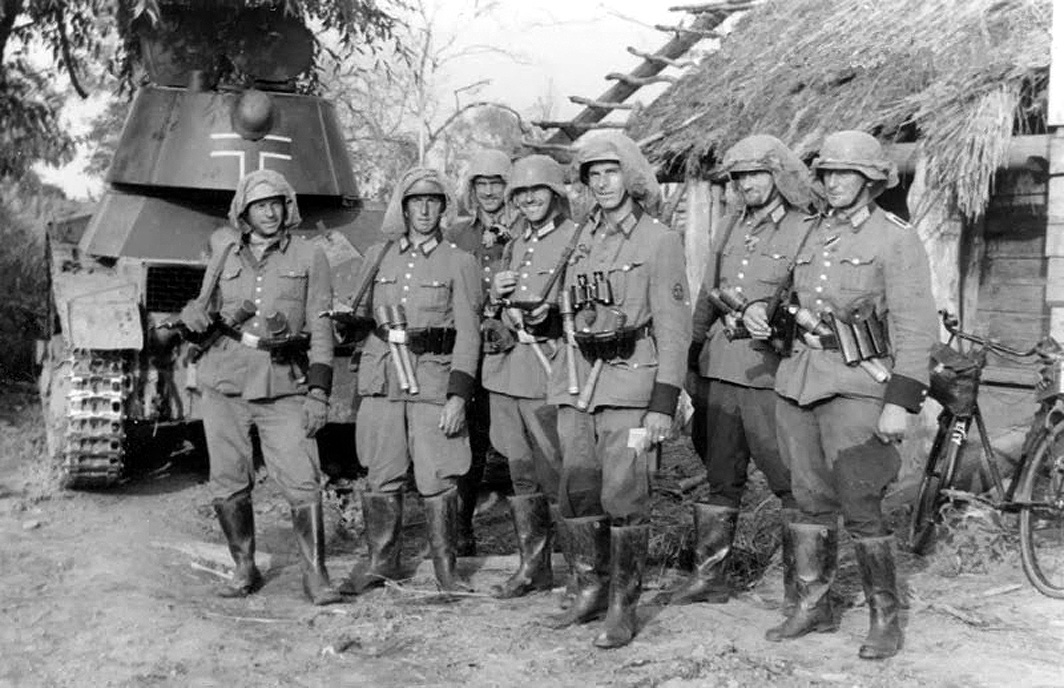
[Above: Men of the SS Police Division.]
Did you see any war crimes in Greece?
Only from the bandits, much like their comrades on the east front, they were brutal to the civilian population. We would enter small villages and they would be completely shut up, no one would come to the doors. It was hard to get them to help us find these terrorists as then they would be killed. A local priest came to our commander and told him his congregation had been robbed and threatened, and everyone was afraid to ask us for help, as we could not be around in every town all the time. The next week our patrols came upon his parish, where he and several members had been killed.
It was here that we realized we had to force the people to give us information, so we actively occupied as many towns as we could. We used informants posing as bandits, posted high rewards, and broke up battalions to occupy as many towns as we could to try to keep away bandits from the people. When we did catch these butchers, we publicly hung them to show the people these monsters were not that powerful. This helped as more civilians came to us to turn in neighbors they knew were bandits and their hideouts.
The bandits were very clever here; there was a rumor they used a mole to create an investigation about how we treated captured bandits. The higher ups were furious they had been duped to waste time looking into cases of abuse that was never happening. We followed the laws of war to the letter, if someone was caught who could be proven to be a bandit, they were either executed, or sent to prison as a negotiation tool. We would sometimes have to trade prisoners, to save our own men from execution. Once a bus full of Helferinnen [female assistants] were captured and we quickly traded a captured leader to prevent them from being raped or killed.
Today they claim we killed many innocent Greeks, when in truth it was bandits, whose reckless attacks and disregard for civilians caused losses. We attacked a town that an informant told us was full of a band who had recently attacked a patrol. They did not tell us that the town was full of civilians the bandits were using as shields. Greeks who fought by our side insisted on attacking, and the town was shelled, an attack was launched and after two hours it fell. The amount of civilians that had died was sickening. We had no idea they were in the battle area. The Greek soldiers quickly shot any man found to be part of the bandit group for the deaths they caused.
There were survivors and we quickly brought in medical teams to get them to hospitals and to care for children. By this time, we had been successful in driving the bandits out of many areas, but the war was not going well. We learned of the defeats in Normandy and the collapse of the east front. We were pulled out of Greece to face the Bolsheviks coming into the Balkan countries.
Again, we made ready to face the overwhelming force of the Bolshevist hordes on our doorstep. Our goal was to try to slow them down so the western allies had time to come and could help us fight them; those were the rumors back then. In late '44, we saw mass columns of refugees trying to escape, from all over Ukraine, Russia, Romania, Bulgaria, Greece, and Poland, all trying to get to the Reich. It was heartbreaking to hear all of the stories about rapes, killings, and the overall savagery of the Bolsheviks and bandits. The only war crimes I ever witnessed were those committed by our enemies; never did I see a German commit a crime against civilians.
We would occasionally have to step in to handle thefts, or the soldier who wanted to court a daughter or two, against the wishes of the father. Most any infraction against Germans was a minor charge like stealing an egg or a bottle of wine. If they paid double the value back to the victim, it was usually forgiven.
In this area, there were many gypsies, and they roamed the countryside looking for their next victims to cheat and live off of. We enjoyed the shows they would put on, like the circus, but we really had our eyes on them, even the kids would rob us blind. The women liked to make money by getting cozy with the soldiers, but any accusation of unwanted advances was investigated.
What was the end of the war like for you?
I was in constant action the last part of '44 and in January '45 I was wounded again, this time a sniper shot me in the shoulder, I was quite lucky. I was sent to a hospital in Graz [Austria], and in March, I was forced to leave to avoid the Bolsheviks who now outnumbered our tattered armies 20 to 1. I was surprised at all the foreign fighters I saw now, from all over Europe, fighting for us. I received a letter from Astrid that she and her family had escaped west and she was in a hospital in Flensburg [Germany].
I was still healing but forced into an ad hoc defense unit to fight Americans. I was given a Panzerfaust and a new MP 44, my first action was trying to hit a scout vehicle, but missed terribly. My unit was quickly dispersed after as artillery and rockets rained down on us as I gave away our position. As I started to retreat, I saw an American platoon coming towards me, men started coming out of hiding and surrendering, I guessed it was time to quit, there was no more fight left, and we had done our duty.
The soldiers were rough with us, and ripped off the medals we had. It was pointed out I was SS and so I received harsher treatment. I asked to speak to the officer in charge, but I was told he did not want to talk to me. I was sent to a holding camp and told I was going to be returned to the Russians or Greeks as I had fought against both and it would be certain death. My division was close by and I asked to be transferred to them, but it was noticed from my Soldbuch [soldier’s identification book] that I was a police officer. I was transferred with several other men into Munich and given duties as a police officer again to help the Americans maintain order. I was given a pistol and baton and again had the power to arrest anyone breaking the laws of the new occupiers.
It was fortuitous for me as I thought I would be sent to the Russians or Greeks, as many were being forced to go back to the fronts they fought on. In an even stranger twist, I was released to the British as there was a great need for police officials all over the former Reich, I was sent up to Kiel which was now close to Astrid. By this time it was late August, the war was over and we could look to the future. I was lucky to be one of the first freed, as I had an important role in keeping order.
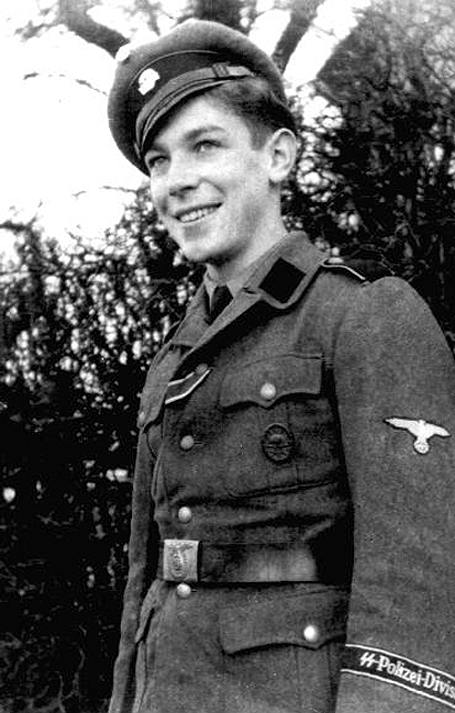
[Above: A smiling young lad of the SS Police Division. Note his cuff title.]

[Above: SS Police Division cuff title, as seen above.]
Back to Interviews